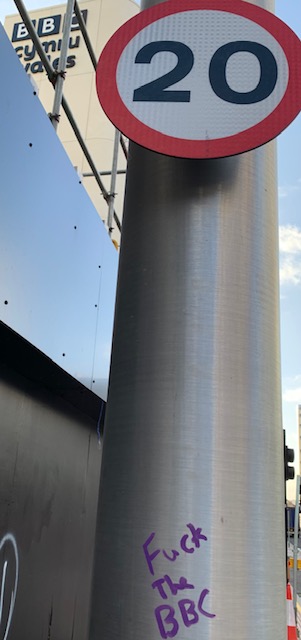- ‘Lies, damned lies etc…’ - 13th February 2026
- Missing in action - 12th February 2026
- Travel news again - 11th February 2026

News that the BBC must axe a channel and revealing there will be sweeping job cuts to save money, have put the focus once again on how a radio service is provided in Wales that hardly anyone listens to, and the man in charge of it operated a failed policy of hiring expensive ‘celebrities’, while conducting a controversial affair with a married presenter.
BBC Cymru Radio Wales (RW) has secured record-breaking low audience figures, and the head, Colin Paterson had a contentious liaison with Lucy Owen, despite the fact that his officials had commissioned a programme she fronted, with critics fearing the waste of public money at his station may have been immense.
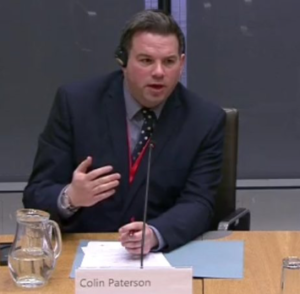
But the corporation appears to be proud of their man, and its website proclaims about Mr Paterson: “As Editor of Radio Wales, Colin runs Wales’ national English language station broadcasting across FM, MW, DAB and online. He is part of BBC Wales’ Commissioning Group which brings radio, television and online together for the first time to share cross-platform ideas and seek out bigger, bolder content”.
The latest audience RAJAR figures, though, tell a rather different story, and show just how bad the situation has become, as well as putting the information about the corporation’s cost-saving measures into context.

In the first quarter of 2022, there was a 10 per cent plunge in the number of hours people tuned in to Mr Paterson’s station, and RW had a weekly ‘reach’ of just 314,000, which was a drop of seven points.
In December the total weekly audience figure was 371,000, but now it is only 345,000.
These dreadful statistics compare with a weekly ‘reach’ in the same quarter for BBC Radio Scotland (RS) of 877,000, while the equivalent figures for BBC Radio Ulster (RU) were of NO DROP WHATSOEVER in listening hours, and a ‘reach’ of 34,000, which was an INCREASE of three per cent.
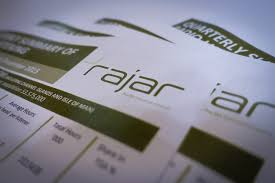
Yet these figures come hard on the heels of other recent controversies, too. The quarter ending December 2021, marked RW down from 5.9 to 5.3 per cent, as a share of the available Welsh audience, and showed that nearly 95 per cent of people in Wales ignore the station ALTOGETHER, yet other radio stations in the UK (as also shown in the latest RAJARs) attracted a far greater audience share.
Past years have been almost as difficult for RW as well.
In 2020 the figures exhibited a slight increase on 2019 but a substantial drop compared with two years earlier, a massive decrease on the year before that, and how more than 40,000 listeners had been lost in one three month period, despite a huge amount of money being spent on new schedules.
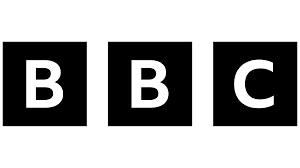
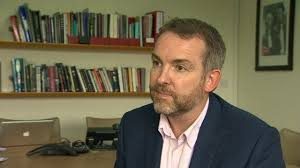
They also revealed that the total listening hours were 2,667,000, down from 3,074,000 in September 2019.
One of the main presenters at RW during its launch, re-stated his call for Mr Paterson, and his superior, Rhodri Talfan Davies, to resign (not be promoted).
Mike Flynn told The Eye: “Both of these so called media executives (Mr Davies and Mr Paterson) are answerable to the public who pay their salaries via the licence fee and should resign. But they are frightened to reveal the audience for the abysmal Claire Summers programme that replaced Good Morning Wales (GMW). I would like to know what the real figures are across daytimes and weekends and how they waste over £18 million. It is about time they started to answer a few questions.”

A former radio executive, said at the time the previous quarter’s terrible listening figures were released: “It’s (the audience numbers are) peaking at weekdays mid mornings, with Wynne Evans the only highlight. There’s an over reliance on celebrities who have little or no substance, and the breakfast programme is a disgrace. Paterson and Davies should go”.
Our Editor, Phil Parry, presented the lunchtime programme, Wales at One (which was scrapped in favour of a new show presented by the former colleague of then Controller Menna Richards, Nicola Heywood-Thomas) the drive-time show Good Evening Wales, as well as the weekly debate series People’s Assembly, for seven years until 2006, and has said publicly that this CANNOT go on.

But RW (as well as Mr Paterson and Mr Davies), has often hit the headlines for unfortunate reasons. The Eye’s journalists have been alone in reporting that Mr Paterson’s affair, and the story about it, was included in a Digital Spy (DS) comment concerning RW with the message above the link saying “…the record low listening figures at Radio Wales under it’s (sic) current management (were) amplified this year by criticism from former award winning reporters and presenters”.


For many staff at BBC CW, Mr Paterson’s romance with Mrs Owen represented a major potential conflict of interest, because officials had commissioned a RW programme she hosted, called ‘Sunday morning with Lucy Owen’, and media executives both inside as well as outside the corporation have told The Eye, that they were worried about their partnership’s possible impact on the process.
When Mr Paterson’s former paramour, Mrs Owen, was newsreading on BBC Wales Today (WT), programme-makers used a picture of Brighton Pavilion during coverage of the start of the hugely important Muslim month of Ramadan instead of a mosque, and the mistake was then featured in the Brighton Argus.
 One Twitter user complained: “BBC Wales showing a picture of the Brighton Pavilion and getting it confused for a mosque when talking about Ramadan is kind of f****d?”. Another wrote furiously: “Not happy they’ve used a shot of Brighton Pavilion as though it’s a mosque (presumably)”.
One Twitter user complained: “BBC Wales showing a picture of the Brighton Pavilion and getting it confused for a mosque when talking about Ramadan is kind of f****d?”. Another wrote furiously: “Not happy they’ve used a shot of Brighton Pavilion as though it’s a mosque (presumably)”.
Mr Paterson’s reliance on ‘celebrity’ in radio programmes (rather than economising) has also come under scrutiny.
 After we reported several years ago that angry listeners had contacted The Eye once it emerged the programme of singing star and broadcaster Aled Jones was suddenly dropped from the airwaves with RW, came news of a very different sort.
After we reported several years ago that angry listeners had contacted The Eye once it emerged the programme of singing star and broadcaster Aled Jones was suddenly dropped from the airwaves with RW, came news of a very different sort.
On November 4 in 2017 we disclosed how new schedules were about to be published by the BBC, but the popular Sunday programme of Mr Jones did not appear. At the time the BBC told us, that they did “make changes to when programmes run”.

However it transpired that the Songs of Praise presenter would not be on the airwaves at all at the BBC, while the broadcaster investigated alleged inappropriate behaviour more than a decade earlier. The singer and TV host from Anglesey, who found fame at the age of 12 with his top five Christmas hit Walking in the Air, said he was “deeply sorry” for any upset caused but strongly denied any “inappropriate contact”, and a spokesman for Mr Jones said that while the matter did not relate to any broadcast work, he had voluntarily agreed not to go on the BBC while it was investigated.

In a statement, the spokesman added: “Whilst he accepts that his (Mr Jones’) behaviour over a decade ago was occasionally juvenile, as was that of others, he never intended to harass or distress and he strongly denies any inappropriate contact. He is, however, deeply sorry for any upset caused and hopes this matter is resolved soon.”
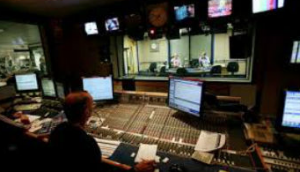
Mr Jones’ spokesman said that the allegations from a single female complainant of inappropriate messages and contact, reported in the Sun, did not relate to any broadcast work, and related to a matter more than 10 years before.
Now comes news of the cut-backs the whole BBC must endure.

The corporation is to announce that arts channel BBC FOUR faces being shut down to save money.
At an ‘away day’ in Cardiff earlier this year, the BBC’s Director General, Tim Davie, outlined the scale of the crisis engulfing the corporation.
Options must be found to the freezing, and possible axing, of the licence fee which funds the BBC, after comments by UK Culture Secretary Nadine Dorries.
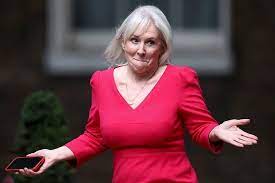
BBC FOUR and the children’s channel CBBC, are to be removed from the airwaves and put online. BBC News is to be merged with BBC World. 200 hours of content are to be scrapped, 1,000 staff are to be taken off the payroll over the next few years, and long-wave radio is to go.
Bosses are making swingeing cuts to many other parts of its output too, as well as the major job losses, in moves designed to cope with a halt for at least two years in any licence fee rises, announced in January, which BBC chiefs say will create a £285 million funding gap by 2027.

Perhaps cuts should be made, too, to RW, after it secured record-breaking low audience figures.
But it was not to be – the man in charge has, naturally, been promoted and is becoming Head of BBC Audio for Wales and the West of England…
The memories of our Editor, Phil Parry’s, astonishing 38 year award-winning career in journalism (including some of the stories he covered during his 23 years at the BBC) as he was gripped by the rare neurological disabling condition, Hereditary Spastic Paraplegia (HSP), have been released in a major book ‘A GOOD STORY’. Order the book now!

Regrettably publication of another book, however, was refused, because it was to have included names.








